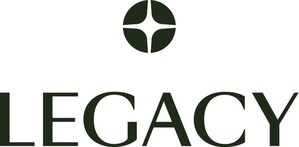Food and Drug Administration Issues Final Rule Regarding Sale, Distribution, and Use of Cigarettes and Smokeless Tobacco
Statement by Cheryl G. Healton, Dr PH, President and CEO, Legacy(SM)
WASHINGTON, March 18 /PRNewswire-USNewswire/ -- The following is a statement by Cheryl G. Healton, Dr PH, President and CEO, Legacy(SM):
A rule issued today by the Food and Drug Administration (FDA) underscores the historical progress made towards fighting the nation's number one cause of preventable death: tobacco-related disease.
On June 22, 2009, President Obama signed into law the Family Smoking Prevention and Tobacco Control Act (FSPTCA). As required by that law, today FDA reissued the 1996 rule that was invalidated when the U.S. Supreme Court held in 2000 that the FDA did not have the authority to regulate tobacco. The reissuance of the rule recognizes the visionary leadership of then-FDA Commissioner David Kessler and the dramatic evolution in only 15 years of this country's determination to regulate tobacco products, which comprise the single largest cause of preventable death and disease. As a sign of how far the country has come, this rule is only one part of the comprehensive regulatory approach established by the FSPTCA that now applies to tobacco.
On this historic day, much credit should also be given to many of our nation's attorneys-general. As the negotiators of the 1998 Master Settlement Agreement (MSA) and its chief enforcers, AGs across the country worked to ensure that many of the provisions of the 1996 rule were incorporated into the final negotiated MSA. Indeed, AGs continue to push forth similar efforts at the state level regarding sales and advertising of tobacco-related products. Just last week in Vermont, in a case of national importance, Vermont Superior Court Judge Dennis Pearson found that R.J. Reynolds Tobacco Company's advertising claims of a 'reduced risk' cigarette were deceptive and misleading, and in violation of Vermont's Consumer Fraud Act and the 1998 MSA.
Today's action by FDA restricts the sale, distribution and use of cigarettes and smokeless tobacco, including provisions that:
- Prohibits the sale of cigarettes or smokeless tobacco to people younger than 18.
- Prohibits the sale of cigarette packages with fewer than 20 cigarettes.
- Prohibits the sale of cigarettes and smokeless tobacco in vending machines, self-service displays, or other impersonal modes of sales, except in very limited situations.
- Restricts free samples of cigarettes or smokeless tobacco products.
- Prohibits tobacco brand name sponsorship of any athletic, musical, or other social or cultural event, or any team or entry in those events.
- Prohibits gifts or other items in exchange for buying cigarettes or smokeless tobacco products.
- Requires that audio ads use only words with no music or sound effects.
- Prohibits the sale or distribution of items, such as hats and tee shirts, with tobacco brands or logos.
The rule would also require that most tobacco advertising and labeling must be in black text on white background. This requirement, however, is currently the subject of litigation. In a decision which is on appeal, a District Court in Kentucky has stopped this provision from going into effect.
In a related action, the FDA is seeking public comment on whether restrictions on outdoor advertising are necessary to protect youth from tobacco use and, if so, how to do so within the framework of the law. The 1996 rule banned tobacco product outdoor advertising within 1000 feet of schools, parks or playgrounds. A similar prohibition, however, was found to be unconstitutional by the U.S. Supreme Court. The FDA has asked for comment on the current state of the research and potential alternative approaches. Public comment on that provision will be open for 60 days, until May 18.
More than 400,000 Americans continue to lose their lives each year to tobacco-related diseases, from cancers and heart disease, to emphysema and stroke. Tobacco-related advertising plays a tremendous role in reaching a new generation of smokers, by targeting teens. We welcome today's FDA action as an important, historic step, toward reducing the influence of Big Tobacco on today's youth, and helping to further create a culture in which young people reject tobacco, and smokers receive the tools and support they need to quit.
Legacy(SM) is dedicated to building a world where young people reject tobacco and anyone can quit. Located in Washington, D.C., the national public health organization helps American live longer, healthier lives. Legacy develops programs that address the health effects of tobacco use, especially among vulnerable populations disproportionately affected by the toll of tobacco, through grants, technical assistance and training, partnerships, youth activism, and counter-marketing and grassroots marketing campaigns. The foundation's programs include truth®, a national youth smoking prevention campaign that has been cited as having contributed to significant declines in youth smoking; EX®, an innovative public health program designed to speak to smokers in their own language and change the way they approach quitting; and research initiatives exploring the causes, consequences and approaches to reducing tobacco use. The American Legacy Foundation was created as a result of the November 1998 Master Settlement Agreement (MSA) reached between attorneys general from 46 states, five U.S. territories and the tobacco industry. Visit www.legacyforhealth.org.
SOURCE Legacy
WANT YOUR COMPANY'S NEWS FEATURED ON PRNEWSWIRE.COM?
Newsrooms &
Influencers
Digital Media
Outlets
Journalists
Opted In





Share this article